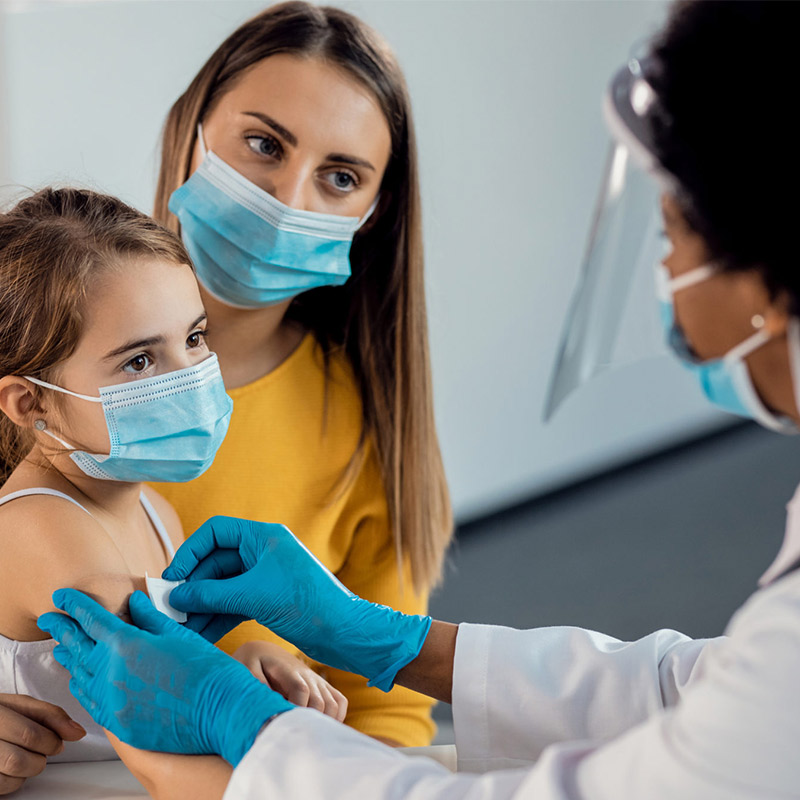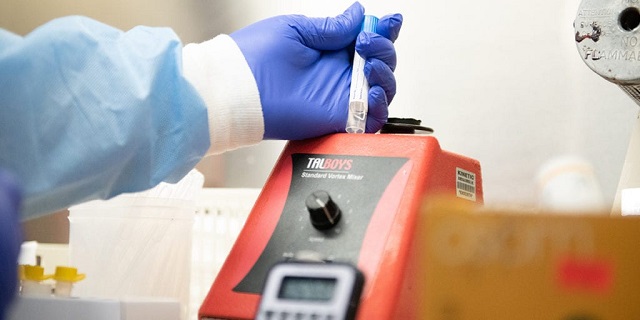COVID-19 Vaccine Trials: 9 Things You Should Know

October 08, 2020
Every day we hear promising claims that a vaccine will be a vital tool in the fight against COVID-19. Several companies are in Phase III clinical trials and volunteers are needed to participate and help determine if the vaccines can be approved for use.
Should you participate? Here are nine things you should know if you are considering volunteering for a COVID-19 vaccine trial.
1. How do vaccine trials work in the United States?
There are several stages to vaccine development, such as the exploratory, pre-clinical, clinical, review and approval, manufacturing and quality control stages. In the clinical development stage, there are three Phases where humans participate in the trials.
- Phase I – Small groups of people are given the vaccine to test for safety, early effects and dosage.
- Phase II – Hundreds of people with different characteristics (such as age and health status) are given the vaccine to further test for safety, effects and dosage.
- Phase III – Thousands of people are given the vaccine to test if it’s effective against the virus.
Once all three phases are complete, the U.S. Food and Drug Administration (FDA) reviews the trial results and conducts other important safety inspections before approving a vaccine for use. Once approved, the FDA continues to oversee production and monitor activity to ensure safety.
2. How do I volunteer for a COVID-19 vaccine trial?
There are several Phase III Clinical Trials that are currently seeking volunteers. To raise your hand, you have to complete a brief screening survey. You must be 18 years or older to participate.
3. Are vaccine trials safe?
Participating in any type of clinical trial always has some risk involved, however, it’s important to keep in mind that before any treatment or vaccine can be administered to humans, it goes through rigorous testing in laboratories and is evaluated by the FDA. There is lower risk for people participating in Phase III clinical trials, where the vaccine has already been administered to a large group of people.
Overall, participating in a COVID-19 vaccine trial is a noble deed and a great way to help others during the pandemic. If at any point a participant experiences an adverse reaction, others will be notified and the trial may be paused. According to White House coronavirus advisor, Dr. Anthony Fauci, pausing large human trials is “not uncommon” and is “one of the safety valves that you have on clinical trials.”
4. What do I have to do if I am approved to participate?
Participation requirements vary based on the study you enter, but we can give you a little insight as to the commitment necessary if you were to join the current trial at Hackensack Meridian Health.
- You will be asked to come to the trial site about seven times over a period of about two years. You will only get injections during your first two visits.
- During your visits, you’ll receive a physical exam, blood samples and nose swabs or saliva samples will be collected. You’ll also talk through your health status and extra tests may occur if needed.
- Early on in the study, your study team will call you weekly to check on your health. Further into the study, the calls will become monthly. You will be asked to keep a journal of any side effects you’re experiencing after the injections.
5. Who should volunteer?
It’s extremely important that a diverse population participate in the COVID-19 vaccine clinical trials, including those who have been most severely impacted by the virus. Under-enrollment of African Americans and Latinos has historically been an issue with clinical trials, and many companies and government organizations are taking this opportunity to stress the importance of diverse involvement in these studies. This article further explains why clinical trials need people of all heritages.
6. Are volunteers paid?
Compensation varies based on the vaccine trial you enter. Some offer compensation for travel or time involved with participating.
7. Can I leave the study if I change my mind?
Participating in a clinical trial is completely voluntary. If you decide at any point that you no longer want to participate, you can leave the study. Although you have the option to leave at any time, the research will be most impactful if participants stay throughout the entire study.
8. Can I ask for my doctor’s advice before joining a vaccine clinical trial?
Yes, you are encouraged to speak to your health care provider, as well as family, friends and/or religious leaders before participating in any clinical trial. It’s important to make sure you’re comfortable with whatever decision you make.
9. Are the study results shared with participants?
Yes, study results are shared with all participants at the completion of the trial.
Next Steps & Resources:
- Meet our clinical contributors: David Kountz, M.D. and Ihor Sawczuk, M.D.
The material provided through HealthU is intended to be used as general information only and should not replace the advice of your physician. Always consult your physician for individual care.
Find a doctor near me
Top 6 Questions About COVID-19 Vaccines

COVID-19 Vaccine Questions Answered. Doctors Kountz and Sawczuk provide expert information on safety, availability, and more. Learn more & schedule an appointment.
A Quick Breakdown of the 3 Different COVID Vaccines

Daniel Varga, M.D., chief physician executive at Hackensack Meridian Health shares some key differences and what you should consider when getting the COVID vaccine
Find a doctor near me

How to Prepare for Your COVID-19 Vaccine
Prepare for your COVID-19 vaccine. Learn how to schedule your appointment, what to wear, and what to bring. Get vaccinated today.

What Are COVID-19 Vaccine Side Effects, and How Long Do They Last?
Here are answers to questions that you may have about COVID-19 vaccine side effects.

COVID Vaccine and Children: What to Know
Here's everything parents need to know about the COVID vaccine.

What Can You Do After You’re Fully Vaccinated Against COVID?
There are advantages to getting fully vaccinated against COVID-19.
